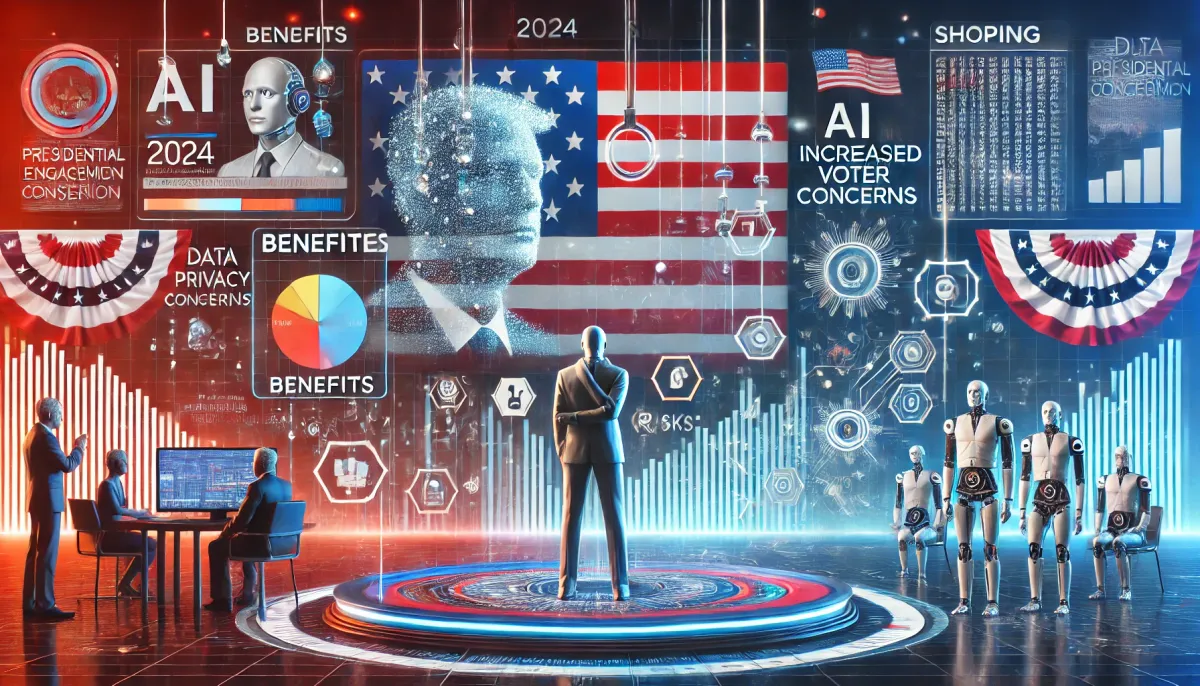The Role of AI in Shaping the 2024 Presidential Election: Benefits and Risks

Impact of AI on the 2024 Presidential Election
The Role of AI in Campaign Strategies
Artificial Intelligence (AI) is poised to revolutionize how political campaigns are conducted in the 2024 presidential election. Campaigns now use AI to develop more sophisticated strategies, enabling instantaneous responses to unfolding events. AI generates targeted messages, speeches, and videos efficiently without the extensive shooting, editing, or review that traditional methods required.

Data Analysis and Microtargeting
One of AI's most impactful contributions has been in the realm of data analysis and microtargeting. By harnessing advanced AI capabilities, campaigns can analyze vast amounts of microdata in real-time. This allows for highly precise audience targeting and the development of political messaging that resonates on a personal level with various demographics.
Challenges of Misinformation and Disinformation
Despite these advantages, the darker side of AI's capabilities cannot be overlooked. There is a significant risk that AI could be used to generate and disseminate misinformation and disinformation at unprecedented scales. Experts have voiced concerns that the ability of AI to create false information far outstrips the capacity of traditional fact-checkers to debunk it.
This concerns the public as well. A notable 57% of Americans are extremely or very worried about the potential for AI to create and distribute fake or misleading information about candidates and campaigns. This concern transcends party lines, affecting both Republican and Democratic voters alike.
Public Confidence and Democratization of Disinformation
Public Confidence and Democratization of Disinformation
Compounding these worries is a diminishing public confidence in tech companies' abilities to prevent the misuse of their platforms. Current data shows that only 20% of Americans are confident in the tech industry's ability to safeguard the election from such abuses. This distrust is exacerbated by the increasing accessibility of AI tools to the general public, which democratizes the ability to create and spread false information.
Threats to Election Infrastructure and Need for Regulations
Experts like Nate Persily have highlighted the potential vulnerabilities in election infrastructure posed by AI and other technological trends. This growing threat necessitates the implementation of regulatory measures. Unfortunately, there is a current lack of guardrails or mandatory disclosure requirements to protect voters from AI-generated fake news, disinformation, and false narratives.
The absence of such measures significantly complicates efforts to discern authentic content from fabrications, further eroding public trust. A majority of Americans express confidence in neither tech companies nor their own abilities to detect AI-altered or faked materials, which poses a substantial threat to democratic integrity.
Voter Manipulation and Public Perception
AI's potential for manipulating voter behavior looms large. Through sophisticated social media manipulation and the generation of convincing fake information, AI can influence voters in subtle yet profound ways. The concern is such that 78% of Americans anticipate these AI abuses will indeed impact the outcome of the 2024 presidential election.
In summary, while AI presents significant advantages for modern campaign strategies and data analysis, it also introduces severe risks to the integrity of democratic elections. Public concerns over misinformation, lack of confidence in tech companies, and potential voter manipulation underscore the critical need for stringent regulatory measures and enhanced efforts to maintain public trust and electoral integrity.

